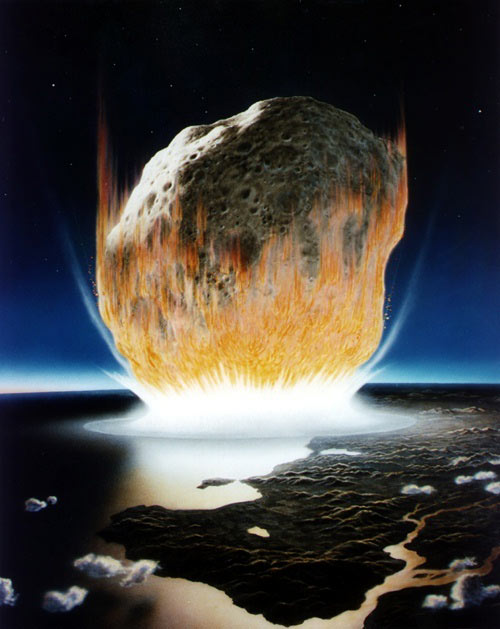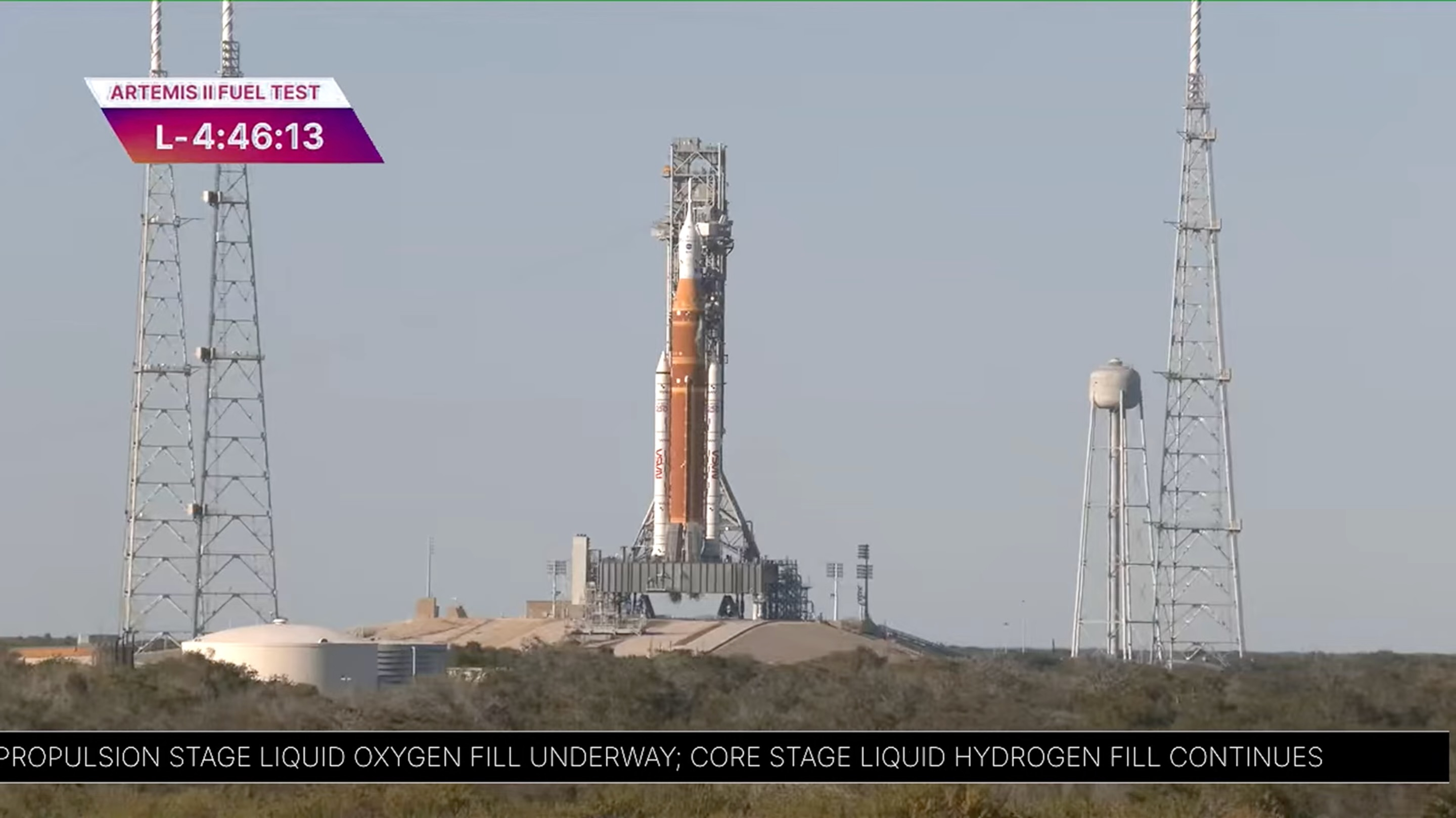Ideas Sought to Protect Earth from Space Rocks

Okay, soyou?ve started the New Year with big aspirations. Maybe you?ve got sky-highambitions to change the world?perhaps even save it.
How aboutfending off mean, nasty, Earth-threatening objects lurking out there in thedark of deep space? There?s surely heaps of glory and macho mojo to win by taking on such scarycelestial beasts Bruce Willis-style as depicted in that striking movie Armageddon!
For thoseof you sleepless in Seattle and elsewhere about Earth-poundingprojectiles from afar, the esteemed National Academies is on the lookoutfor scientific and technically credible ideas.
The SpaceStudies Board ? in coordination with the Aeronautics and Space EngineeringBoard of the National Research Council ? has put in gear a two-part study onNear-Earth Objects, or NEOs for short.
Ablue-ribbon group of experts has been selected to address issues concerning thedetection, tracking, and characterizationof NEOs ? and approaches to mitigating identified hazards.
Requestfor information
Thiscommittee has issued a Request for Information (RFI) to solicit ideasto survey, detect and characterize NEOs, as well as potentialmission concepts for deflection/mitigation of Earth-smacking objects.
Breaking space news, the latest updates on rocket launches, skywatching events and more!
Thosewishing to submit their schemes may draw upon the use of different facilities ? ground-or space-based ? and/or involve international cooperation in their proposedsolutions.
Over theyears, there?s been a roster of NEO-thwarting proposals, among them: Blastingthem with reflected solar energy, nuking them outright, gravity tractors,strapping little rocket motors onto the object, even pushing a NEO out of theway by collective mental channeling.?
To get moreon this RFI request, I launched my own information probe to the committee.
Nomagic, please!
?Congressasked the National Academies to look at current efforts for detecting andmitigating the threat posed by objects whose orbits may take them close to Earth. Specifically,Congress wants suggestions as to what steps to take next,? responded IrwinShapiro of the Harvard Smithsonian Center for Astrophysics and chairman of theCommittee to Review Near-Earth Object Surveys and Hazard Mitigation Strategies.
Shapirosaid that the study will be comprehensive, but added: ?In addition to lookingat all current efforts and ideas, we want to learn about new approaches thatmight be valuable. Hence, we've issued a request to the scientific andtechnical communities for such suggestions."
In seeking proposals, suggestions sent in must be anchored in reality. That is,they need to be capable of being evaluated both from a technical and from acost perspective, since one of the committee?s tasks is to produce costestimates of the options.
?So nomagic, please, just well-thought out concepts and plans commensurate with thetime available for response to this request,? Shapiro said.
Underscoring thatview is Dwayne Day, the study director for the NEO assessment: ?No moviescripts, please. Wedon?t need Bruce Willis.?
So theinvite is out to write a program or mission concept for detecting,characterizing, or mitigating the hazards of NEOs.
The deadlinefor ideas is March 20, 2009.
However,for logistical reasons, the Committee asks that you first submit a Letter ofIntent by Jan. 30, 2009.
For moreinformation, go to:
NEO Surveys Mitigation Request for Information
By theway?no pressure, but the Earth is counting on you!
- Video - The Asteroid Paradox
- Earth-Hitting Asteroids: Katrina From Space
- Images - Asteroids
LeonardDavid has been reporting on the space industry for more than four decades. Heis past editor-in-chief of the National Space Society's Ad Astra and SpaceWorld magazines and has written for SPACE.com since 1999.

Leonard David is an award-winning space journalist who has been reporting on space activities for more than 50 years. Currently writing as Space.com's Space Insider Columnist among his other projects, Leonard has authored numerous books on space exploration, Mars missions and more, with his latest being "Moon Rush: The New Space Race" published in 2019 by National Geographic. He also wrote "Mars: Our Future on the Red Planet" released in 2016 by National Geographic. Leonard has served as a correspondent for SpaceNews, Scientific American and Aerospace America for the AIAA. He has received many awards, including the first Ordway Award for Sustained Excellence in Spaceflight History in 2015 at the AAS Wernher von Braun Memorial Symposium. You can find out Leonard's latest project at his website and on Twitter.
